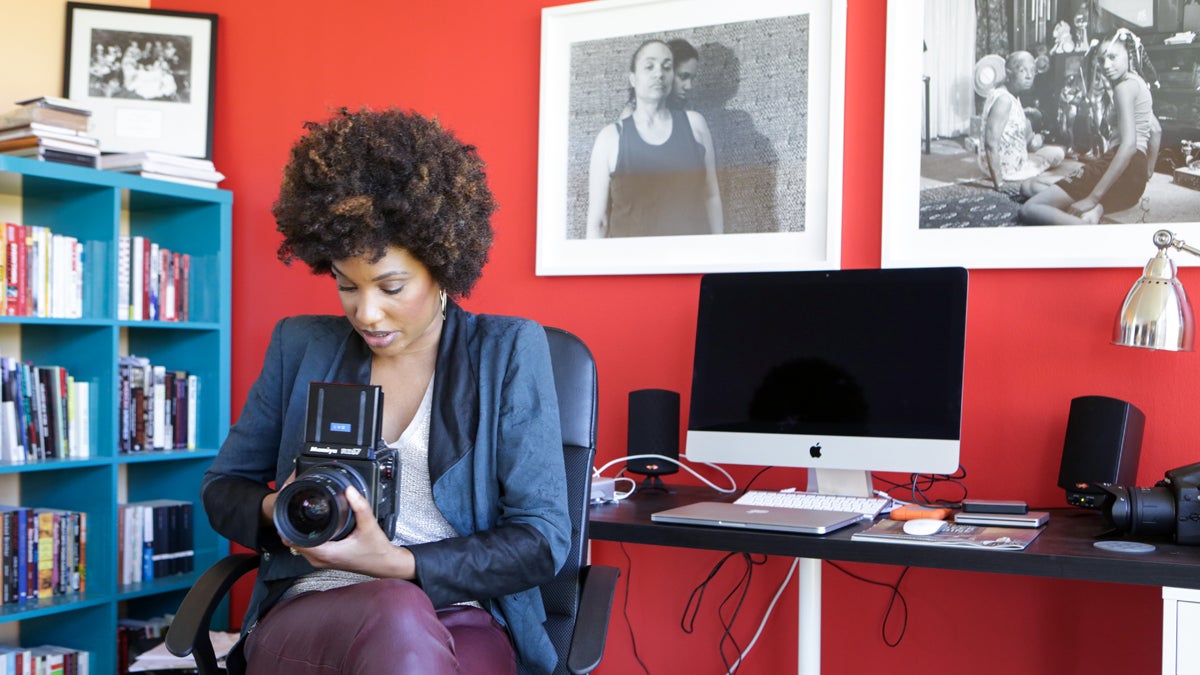MacArthur Foundation ‘geniuses’ focus on urban issues

John D. and Catherine T. MacArthur Foundation 2015 "genius" grant winner LaToya Ruby Frazier (John D. & Catherine T. MacArthur Foundation)
The issues include declining industry, poverty, racial discrimination and immigrant integration.
On Tuesday, the John D. and Catherine T. MacArthur Foundation announced the 24 recipients of its annual “genius” grants. Each year, the foundation gives no-strings-attached funding, currently $625,000 paid out over five years, to “talented individuals who have shown extraordinary originality and dedication in their creative pursuits and a marked capacity for self-direction.”
Four of the grant winners focus on the issues that face U.S. cities, including declining industry, poverty, racial discrimination and immigrant integration.
Here’s more about the “geniuses”:
LaToya Ruby Frazier, photographer and video artist
Frazier grew up in Braddock, Pa., and she has spent the last 12 years creating portraits, still life and landscape photos, and performances that document life in the industrial suburb. In a video, Frazier said her work deals with “labor, the collapse of the steel industry and what happens to workers after their bodies are discarded.”
Frazier’s family migrated to Braddock from the south in the early 1900s, and her great grandfather worked as a crane operator in the town’s steel mill. He had a lot of injuries as a result.
Frazier’s first book, “The Notion of Family,” reveals some of the health effects she says the women in her family have faced as a result of living next door to heavy industry, according to NPR.
The photographer said she sees it as her job “to be a witness to what’s happening,” and that the MacArthur grant will allow her to “continue to make meaningful work and have a purposeful life.”
Frazier is an assistant professor in the photography department at the School of the Art Institute of Chicago.
Matthew Desmond, urban sociologist
Desmond, an associate professor of sociology and social studies at Harvard University, has written books and essays on poverty and the inner-city housing market.
For a recent study, Desmond surveyed residents of a low-income inner-city community to find out more about their experiences with eviction. After also analyzing hundreds of thousands of eviction records and millions of 911 calls, Desmond found that households headed by women are more likely to face eviction than those with men at the helm, and that because of a local ordinance, women reporting domestic violence in the city were often evicted. Desmond’s work led Milwaukee to reconsider, and even change, some of its policies.
Desmond says eviction can cause people to lose their jobs and their possessions, and it can break residents’ spirits.
In a video by the MacArthur Foundation, Desmond related his findings to other American cities, saying that “the prevalence of eviction…in low-income communities, is leaving a deep and jagged scar on the next generation, and it’s something we’ll all have to face sooner or later.”
Ta-Nehisi Coates, journalist
As a national correspondent for The Atlantic, Coates has written about racial identity, urban policing and housing segregation.
In his essay “A Case for Reparations,” the writer outlines the 20th century housing policies, like redlining — “the practice of denying loans and other financial services to African Americans” — that made it next to impossible for African Americans to “accumulate wealth or social status for generations,” according to the MacArthur Foundation.
In a video, Coates said he is interested in “how wide the umbrella of human rights and democracy can expand — who it can include and who it can’t include.” He added that to understand a problem or situation, you have to have “a firm grounding in history.”
Juan Salgado, community leader
Salgado, the president and CEO of Instituto del Progreso Latino, works with immigrants on the southwest side of Chicago, teaching them English and helping them acquire the high-level skills they need to get jobs. Instituto also helps these immigrants “overcome other obstacles to employment, such as transportation, child care and elder care,” according to the MacArthur Foundation.
In a video, Salgado said the success of the adults in the program — whether that means a college degree or a high-level job — shows children in the community that it’s possible to achieve “the promise of upward mobility” and that they “don’t have to stay in poverty.”
Several Pennsylvania cities, including Pittsburgh and Philadelphia, are trying to make themselves more welcoming to immigrants.
In case you’ve ever wondered what happens after you’re designated a genius, in 2014, we followed up with some of the winners from previous years.
WHYY is your source for fact-based, in-depth journalism and information. As a nonprofit organization, we rely on financial support from readers like you. Please give today.


